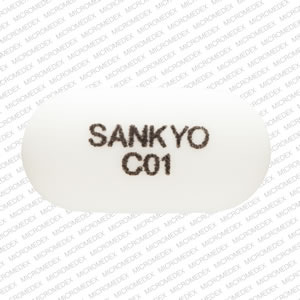Welchol Disease Interactions
There are 4 disease interactions with Welchol (colesevelam).
Colesevelam (applies to Welchol) diabetic ketoacidosis
Major Potential Hazard, Moderate plausibility. Applicable conditions: Diabetes Type 1
Colesevelam should not be used for glycemic control in type 1 diabetes or for treating diabetic ketoacidosis.
Colesevelam (applies to Welchol) gastrointestinal disorders
Major Potential Hazard, Moderate plausibility. Applicable conditions: Gastrointestinal Obstruction, Gastroparesis, Dysphagia
The manufacturer considers colesevelam contraindicated in patients with a history of bowel obstruction. Because of its constipating effects, colesevelam is not recommended in patients with gastroparesis, other gastrointestinal motility disorders, and in those who have had major gastrointestinal tract surgery and who may be at risk for bowel obstruction. Because of the tablet size, colesevelam tablets can cause dysphagia or esophageal obstruction and should be used with caution in patients with dysphagia or swallowing disorders.
Bile acid sequestrants (applies to Welchol) PKU
Moderate Potential Hazard, Moderate plausibility. Applicable conditions: Phenylketonuria
Questran Light and LoCholest Light (brands of cholestyramine) contain 16.8 mg and 22.4 mg of phenylalanine, respectively, per each dose. Flavored Colestid (brand of colestipol) contains 18.2 mg of phenylalanine per each 7.5-gram dose. WELCHOL (brand name of colesevelam) for Oral Suspension contains 13.5 mg phenylalanine per 1.875 gram dose and 27 mg phenylalanine per 3.75 gram dose. The phenylalanine content should be considered when these products are used in patients who must restrict their intake of phenylalanine (i.e. phenylketonurics). Regular Colestid, Questran and LoCholest do not contain phenylalanine.
Colesevelam (applies to Welchol) malabsorption syndromes
Moderate Potential Hazard, Moderate plausibility. Applicable conditions: Vitamin A Deficiency, Vitamin D Deficiency, Vitamin K Deficiency
Bile acid sequestrants, including colesevelam may decrease the absorption of fat-soluble vitamins A, D, E, and K. Caution should be exercised when treating patients with a susceptibility to deficiencies of vitamin K (e.g., patients on warfarin, patients with malabsorption syndromes) or other fat-soluble vitamins. The manufacturer recommends to instruct patients taking colesevelam and oral vitamin supplementation to take their vitamins at least 4 hours prior to colesevelam.
Switch to professional interaction data
Welchol drug interactions
There are 93 drug interactions with Welchol (colesevelam).
Welchol alcohol/food interactions
There is 1 alcohol/food interaction with Welchol (colesevelam).
More about Welchol (colesevelam)
- Welchol consumer information
- Check interactions
- Compare alternatives
- Pricing & coupons
- Reviews (42)
- Drug images
- Side effects
- Dosage information
- During pregnancy
- Generic availability
- Drug class: bile acid sequestrants
- Breastfeeding
- En español
Related treatment guides
Drug Interaction Classification
| Highly clinically significant. Avoid combinations; the risk of the interaction outweighs the benefit. | |
| Moderately clinically significant. Usually avoid combinations; use it only under special circumstances. | |
| Minimally clinically significant. Minimize risk; assess risk and consider an alternative drug, take steps to circumvent the interaction risk and/or institute a monitoring plan. | |
| No interaction information available. |
Further information
Always consult your healthcare provider to ensure the information displayed on this page applies to your personal circumstances.


